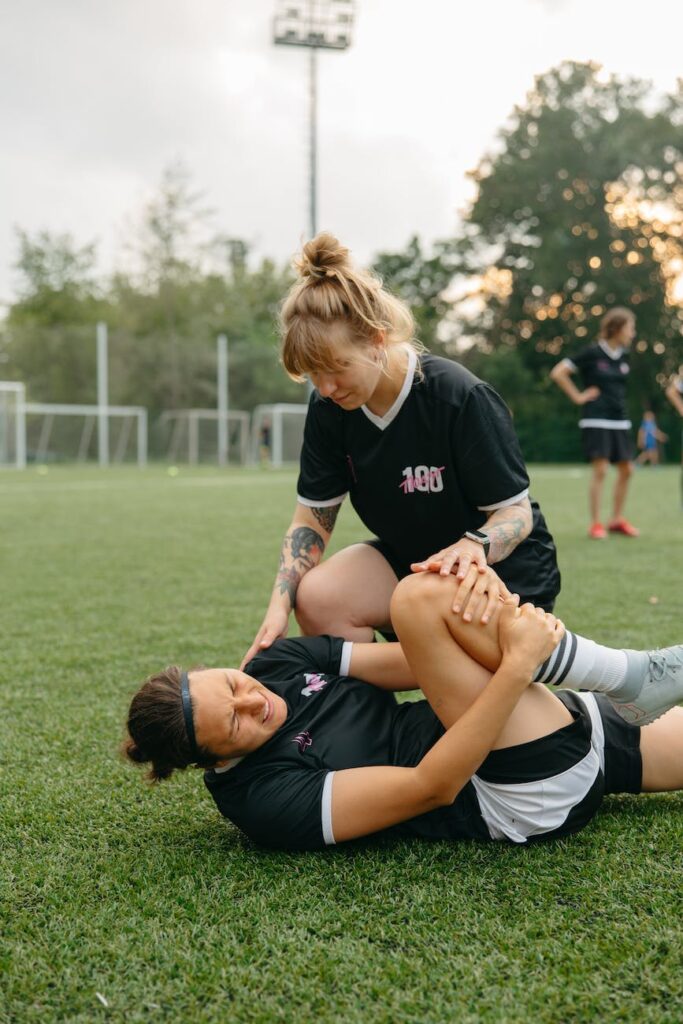Contents
Understanding Personal Injury Claims
Personal injury claims hold a significant place in the world of legal recourse. They provide a way for individuals who have suffered harm due to someone else’s negligence to seek compensation for their injuries. This article aims to help those considering or pursuing personal injury claims in Georgia better to understand the basics and various types of claims.
Basics of Personal Injury Claims
A personal injury claim is a legal dispute that arises when one person suffers harm from an accident or injury, and someone else might be legally responsible for that harm. This legal action begins when the person harmed (the “plaintiff”) files a civil complaint against another person, business, corporation, or government agency (the “defendant”), alleging that they acted carelessly or irresponsibly in connection with an accident or injury that caused harm.
Like many other states, the individual has a two-year statute of limitations on personal injury claims in Georgia. This means they have two years from the date of the incident to file a lawsuit (GitHub). For more information on the implications of this time frame, refer to our article on state-specific laws and regulations.
Types of Personal Injury Claims
In Georgia, personal injury claims can arise from various incidents, each with its unique circumstances and legal implications. Some of the most common types of personal injury claims in Georgia are car accidents, truck accidents, motorcycle accidents, pedestrian accidents, slip and fall accidents, dog bites, and medical malpractice cases (Hines Law).
Car accidents are the most common cause of personal injury claims in the state, often resulting from driver negligence, such as distracted driving, speeding, DUI, and failure to yield. While not as frequent as car accidents, truck accidents can involve complex liability issues due to the involvement of multiple parties, such as the driver, trucking company, and manufacturer. Slip and fall accidents, conversely, are based on premises liability laws, which hold property owners responsible for injuries that occur on their property due to negligence. For more insights into these types of claims, see our personal injury claim examples.
Understanding the basics and types of personal injury claims is the first step toward navigating the complex world of personal injury law. Armed with this knowledge, those affected can make informed decisions about their cases and seek the justice they deserve. For more detailed information on pursuing personal injury claims in Georgia, continue reading the subsequent sections of this comprehensive guide.
Filing a Personal Injury Claim in Georgia
When dealing with personal injury claims in Georgia, there are two critical aspects to consider. These include understanding the time limit for filing a claim and recognizing the importance of having legal representation.
Time Limit for Filing a Claim
In Georgia, the statute of limitations for filing personal injury claims is typically two years from the date of the injury. This means that individuals have two years from the date of the incident to file a lawsuit (GitHub). However, there are exceptions to this rule depending on the circumstances surrounding the incident (Dolman Law Group).
For example, the deadline might be extended if the injury wasn’t discovered immediately. It’s crucial to file the claim within this timeframe, as cases filed after the statute of limitations expires are likely to be dismissed by the court. For more information on state-specific laws and regulations, you can visit our page on state-specific laws and regulations.
Importance of Legal Representation
Navigating the legal landscape of personal injury claims in Georgia can be complex. Having a legal representative specializing in personal injury claims can greatly increase the chances of a successful claim. A personal injury lawyer can guide you through the legal process, help you understand your rights, gather evidence to support your claim, negotiate with insurance companies, and represent you in court if necessary.
Choosing the right legal representation is crucial. Your lawyer should have a strong understanding of Georgia’s personal injury laws, a proven track record of successful claims, and the ability to communicate the legal process and potential outcomes to you. For guidance on selecting a legal representative, you can visit our article on choosing the right personal injury lawyer.
Remember, filing a personal injury claim is not just about seeking compensation for your injuries. It’s also about holding responsible parties accountable and advocating for changes that can prevent similar incidents from occurring in the future. For more insights into preventing personal injuries, you can check out our dedicated article.
Implication of Comparative Fault Rule
In the realm of personal injury claims, understanding the role of the comparative fault rule is crucial. This rule, which is followed in Georgia, can significantly impact the compensation received by the injured party.
Understanding Comparative Fault Rule
Georgia follows a modified comparative fault rule, where an injured party can only recover damages if they are found to be less than 50% at fault (Atlanta Advocate). This means that if the injured party is partly at fault for the accident, their total compensation will be reduced by their percentage of fault. Furthermore, if the injured party is found to be 50% or more at fault, they are not entitled to any compensation.
For instance, if an individual is found to be 30% at fault for an accident that resulted in their injury, their total compensation will be reduced by 30%. So, if the total damages amounted to $100,000, they would only receive $70,000.
In the context of personal injury claims in Georgia, the exercise of ordinary care by the victim also plays a significant role in determining their right to recover damages. If the victim had the opportunity to avert the accident through ordinary care, their ability to secure monetary damages may be compromised, even if the defendant was negligent.
Impact on Compensation
The comparative fault rule directly impacts the compensation that an injured party can recover. Under Georgia’s modified comparative fault rule, if the insurance company can prove that the injured party holds a certain percentage of fault for the accident, it can benefit them by reducing the amount they have to pay out (Atlanta Advocate).
This rule underscores the importance of gathering strong evidence to support your personal injury claim, as it can directly influence the determination of fault and, subsequently, the compensation you receive. Working with a knowledgeable lawyer who can effectively navigate these legal nuances and advocate for your rights is also essential.
Understanding the comparative fault rule and its implications is just one aspect of navigating personal injury claims. To gain a comprehensive understanding of the claims process, consider exploring other topics such as the types of personal injury cases, the role of insurance in personal injury claims, and how to calculate personal injury compensation and damages.
When dealing with personal injury claims in Georgia, it’s essential to understand the concept of damages, which is the legal term for the monetary compensation a plaintiff seeks in a lawsuit. Damages aim to restore the plaintiff to their condition before the incident, financially speaking. There are different types of damages, and understanding each can help determine the value of a claim.
Types of Damages
In Georgia, the law allows for recovery of both economic and non-economic damages in personal injury claims, providing avenues for full compensation for the injured party.
- Economic Damages: These are quantifiable losses resulting from the injury. They include medical expenses, lost wages from being unable to work, property damage, etc.
- Non-Economic Damages: These are less tangible and more subjective but significant. They include pain and suffering, emotional distress, loss of enjoyment of life, etc.
It’s important to carefully document all losses related to personal injury to ensure full compensation. For more, see our article on personal injury compensation and damages.
Calculating Pain and Suffering Damages
In Georgia, pain and suffering damages are financial compensation for the emotional distress, pain, and suffering a person experiences after an accident, which can impact the rest of their life, especially in cases of long-term complications (Westmoreland Law).
“Pain” refers to the physical harm throughout the body, and “suffering” is connected to emotional distress like loss of relationships or mental health issues due to the injuries. The calculation of these damages is complex and subjective, often relying on expert testimony and the attorney’s skill.
Surprisingly, even minor injuries can result in substantial compensation for pain and suffering due to the consideration of non-economic factors. However, securing adequate compensation requires a skilled attorney. If you’re looking for legal representation, see our guide on choosing the right personal injury lawyer.
Interestingly, Georgia does not limit pain and suffering damages when a case goes to court, allowing juries and judges the freedom to award damages based on the presented case facts. However, Georgia’s comparative negligence law is restrictive, requiring a minimum eligibility of 50 percent negligence to receive compensation for pain and suffering (Westmoreland Law).
Understanding how damages work, particularly pain and suffering damages, is crucial in navigating personal injury claims in Georgia. It can help you set realistic expectations and make informed decisions throughout the claims process. For more on this topic, check out our articles on personal injury claims and personal injury settlement.
Special Cases in Personal Injury Claims
When it comes to personal injury claims, certain scenarios require special consideration. These include cases involving children and instances where insurance companies play a significant role. Understanding these specific situations can be critical to a successful personal injury claim in Georgia.
Children and Personal Injury Claims
Personal injury claims involving children have unique considerations. In Georgia, for instance, dog owners are held strictly liable for injuries caused by their dogs, regardless of the dog’s past behavior or the owner’s knowledge of such behavior. This law is particularly vital when children are involved, as they are often the victims of dog attacks.
Furthermore, medical malpractice cases involving children also have specific requirements. For instance, the injured party must provide an expert affidavit and the claim to prove that the healthcare provider deviated from the accepted standard of care, resulting in the injury (Dolman Law Group).
For more information on the unique aspects of personal injury claims involving children, please navigate to our detailed guide on children and personal injury claims.
Dealing with Insurance Companies
Insurance companies play a significant role in personal injury claims, especially in car accident cases. Georgia operates under a modified comparative fault law, which allows an individual injured in a car accident to seek financial compensation if they are no more than 49% at fault (Atlanta Advocate).
However, dealing with insurance companies can be a complicated process. Initially, the insurance adjuster assigns a percentage of fault to each driver involved in a car accident. But if the injured party hires a car accident lawyer, the fault percentage becomes a point of discussion during the settlement negotiation process (Atlanta Advocate).
If there is a stalemate between the lawyer and the insurance company, the claim may progress to trial, where the court determines the fault percentage for each driver. Understanding the role of insurance companies and how to deal with them effectively is crucial for a successful personal injury claim.
For more insights into dealing with insurance companies during a personal injury claim, refer to our article on insurance in personal injury claims.
In conclusion, navigating personal injury claims in Georgia involves understanding state-specific laws and regulations, the role of insurance companies, and the unique aspects of certain cases involving children. With proper guidance and legal representation, individuals can successfully navigate the personal injury claim process and secure the compensation they deserve.
Preventing Personal Injury Claims
While the focus is often on the process of filing a personal injury claim and seeking compensation, it’s equally important to consider how to prevent accidents that could lead to such claims. By understanding safety measures and the legal facets of accident prevention, individuals can reduce the likelihood of experiencing personal injuries and the subsequent need to file a claim.
Safety Measures to Avoid Accidents
Prevention is always better than cure. This adage holds true in the context of personal injury claims. By adopting appropriate safety measures and being aware of potential risks, individuals can significantly reduce the likelihood of accidents occurring.
According to Westmoreland Law, accident victims in Georgia can increase their chances of receiving compensation by seeking immediate medical attention, gathering and documenting evidence, notifying their insurance company promptly, and not providing statements to the other individual’s insurance adjuster without consulting a lawyer first.
These preventive measures should be complemented by an understanding of the legal aspects of accident prevention to ensure that one’s actions or inactions do not compromise their right to recover damages if an accident does occur.
Legal Aspects of Accident Prevention
In Georgia, the exercise of ordinary care by the victim plays a significant role in determining their right to recover damages. According to Atlanta Advocate, if the victim had the opportunity to avert the accident through ordinary care, their ability to secure monetary damages may be compromised, even if the defendant was negligent.
This underscores the importance of exercising due caution in all activities, whether adhering to traffic rules while driving, following safety guidelines at the workplace, or maintaining one’s property to prevent accidents.
Furthermore, engaging the services of a professional personal injury attorney in Georgia is crucial for navigating the legal complexities of personal injury claims, ensuring fair compensation, and representing the injured party’s best interests (Gautreaux Law Firm).
By developing a comprehensive understanding of the safety measures and legal aspects related to accident prevention, individuals can not only avoid the physical, emotional, and financial toll associated with personal injuries but also protect their legal rights and interests in the event of an accident.
To learn more about personal injury claims, visit our comprehensive guide covering various aspects of personal injury claims in Georgia.







